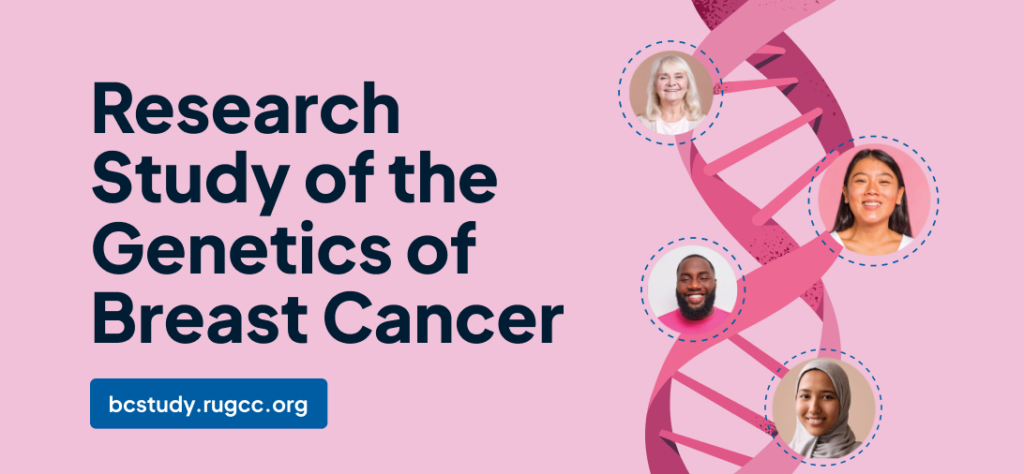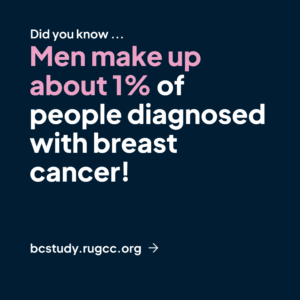Mylie Siegel, Rutgers University, NJ
Genetic Counseling Master’s Student
The scientific paper “Genetic Landscape of Male Breast Cancer” reviews research through 2021 on the genetics of male breast cancer, highlighting what is known and unknown. This summary aims to increase awareness of male breast cancer, which is often overlooked when discussing breast cancer overall. Men are usually diagnosed with breast cancer at older ages (60-70 years) and more advanced stages than women, who are typically diagnosed between 55-60 years. Men often find the cancer when tumors are already over 2 cm in size, meaning the disease is more advanced.
Survival rates for breast cancer have improved in recent years, but progress has been slower for men. Studies show men have an 83% 5-year survival rate, compared to 89% for women. Black men with breast cancer also have lower survival rates than White men. It’s unclear if this is due to late diagnoses, biological differences, or unknown disease factors. Late diagnosis could be addressed through better screening, increased awareness, reducing stigma for men, and improved medical evaluations.
Multigene panel testing, which checks for DNA changes that increase cancer risk, is now widely available. This testing shows that some genetic changes linked to breast cancer in women also apply to men. In some groups, up to one-third of male breast cancer cases are linked to cancer-causing gene changes. However, there are no official recommendations for using multigene testing in male breast cancer patients.
The first genetic links to male breast cancer were found in the BRCA1 and BRCA2 genes. While the general risk of breast cancer for men is 0.1%, men with a harmful BRCA2 change have a 5-10% lifetime risk. Women with these changes are usually diagnosed younger than average, but men are diagnosed at similar ages to those without genetic changes. Other genes like PALB2, CHEK2, and possibly ATM are also linked to increased risk.
Men with breast cancer face higher risks of recurrence, second breast cancers, or other cancers. One study found they had a 34% higher chance of developing another primary cancer, often in the small intestine, pancreas, rectum, skin, prostate, or blood and lymph systems.
The authors of “Genetic Landscape of Male Breast Cancer” emphasize the need for better screening and treatments for men. Research in this area has lagged behind studies on women with breast cancer. However, men are now being included in more research, such as the Study of the Genetics of Breast Cancer at Rutgers University in partnership with Regeneron Pharmaceuticals. This study invites all genders to join to ensure clinical trials represent everyone affected by breast cancer. For more information, visit https://bcstudy.rugcc.org.
To learn more about “The Genetic Landscape of Male Breast Cancer,” the original published article can be found here:
https://pmc.ncbi.nlm.nih.gov/articles/PMC8305894/
Campos FAB, Rouleau E, Torrezan GT, Carraro DM, Casali da Rocha JC, Mantovani HK, da Silva LR, Osório CABT, Moraes Sanches S, Caputo SM, Santana Dos Santos E. Genetic Landscape of Male Breast Cancer. Cancers (Basel). 2021 Jul 15;13(14):3535. doi: 10.3390/cancers13143535. PMID: 34298749; PMCID: PMC8305894.

